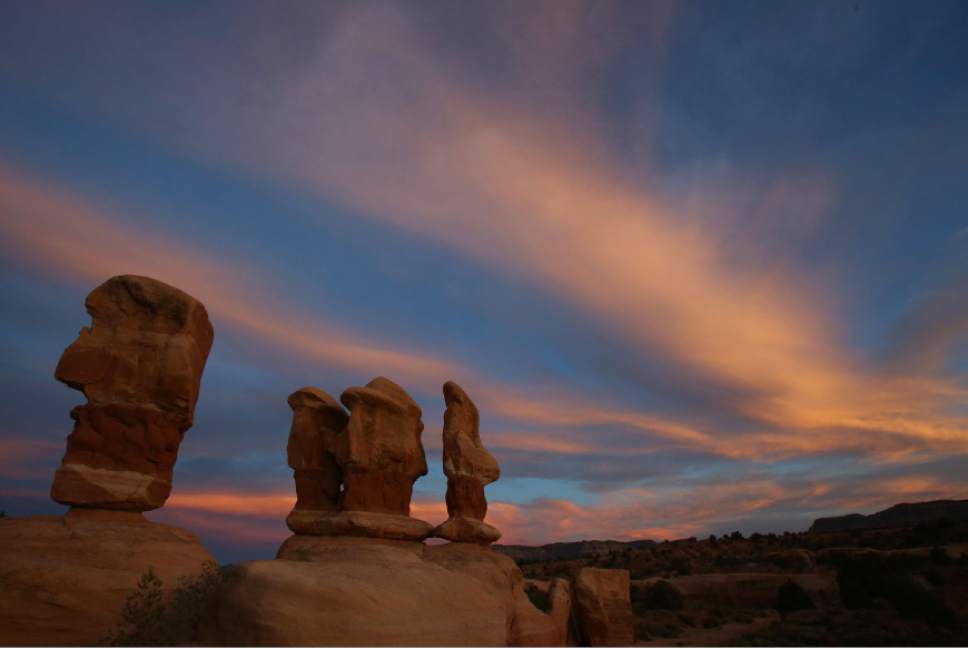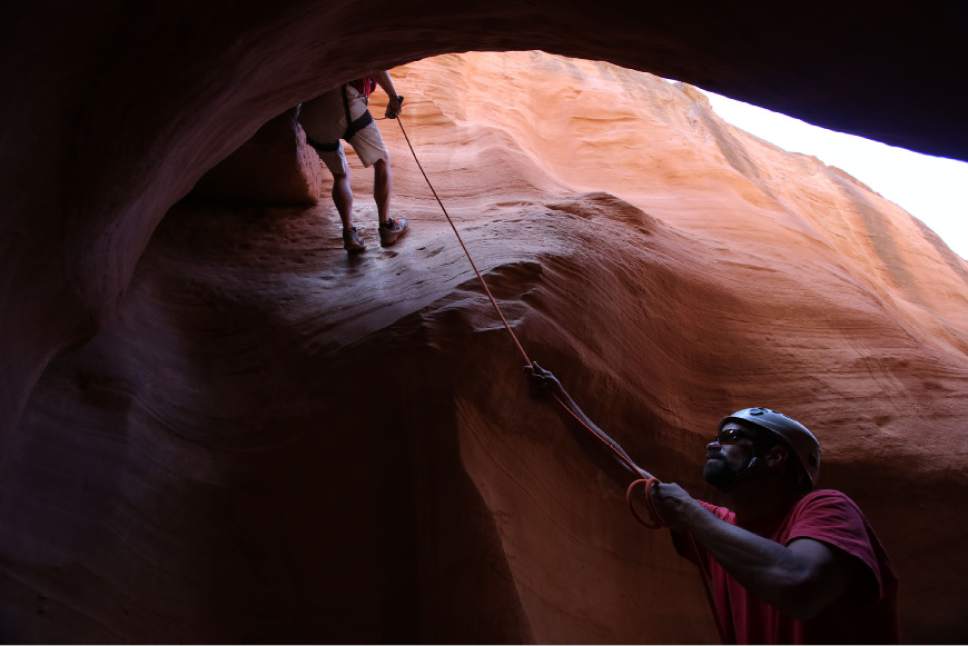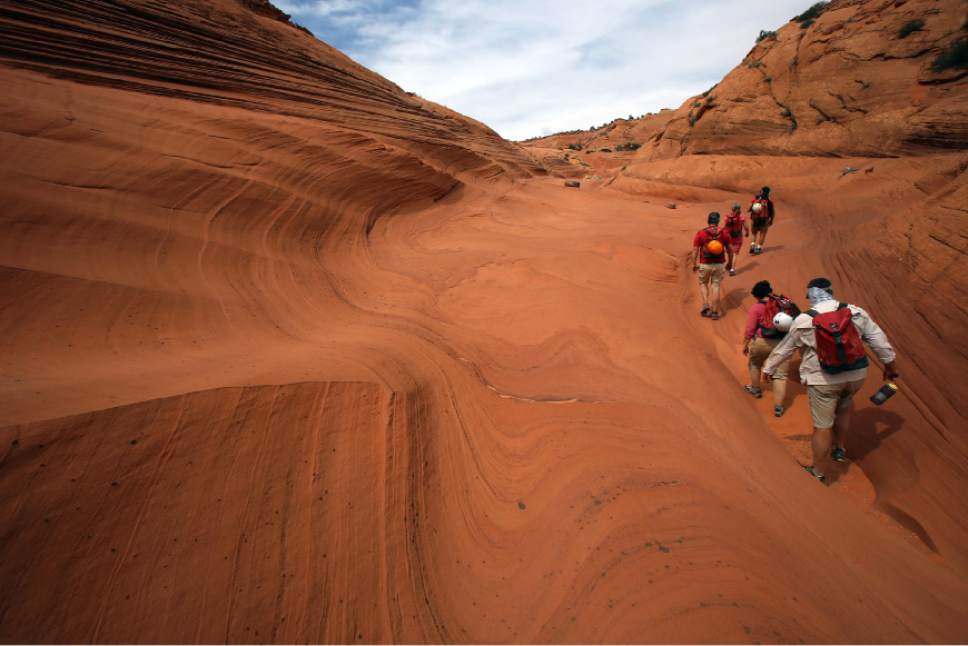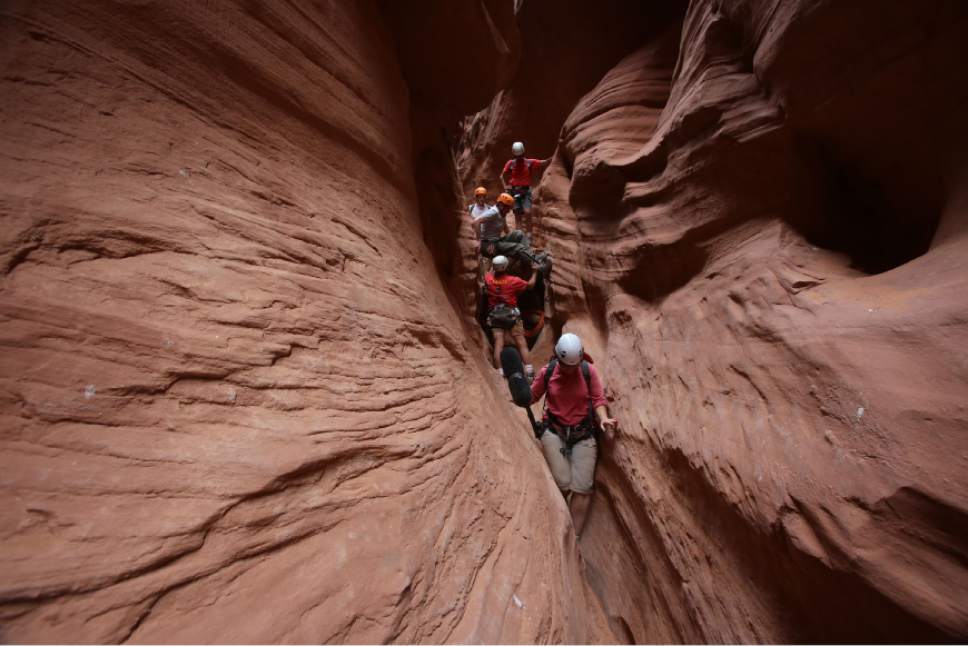This is an archived article that was published on sltrib.com in 2016, and information in the article may be outdated. It is provided only for personal research purposes and may not be reprinted.
A new legal analysis from a group of Western attorneys general casts doubt on many of the arguments Utah has put forward in its push to gain control of millions of acres of federal land.
The report, based on two years of work, doesn't address every argument Utah has floated, but it points out decisions by the Supreme Court and other federal courts that could put Utah on shaky ground if it sues the U.S. government for control. The analysis was drafted by lawyers from seven Republican attorneys general, three Democrats and one independent.
It was obtained by The Associated Press through a public records request.
The Conference of Western Attorneys General, made up of the top law officers in 15 Western states and three U.S. territories, voted 11-1 to approve the report at their annual meeting in Idaho this summer.
Conference officials declined to name which attorney general or state cast the dissenting vote. A spokesman for Utah Attorney General Sean Reyes said Reyes did not participate in the vote. The vote was a procedural move to approve sending the report to the member states, said Dan Burton, a spokesman for Reyes.
Burton said Reyes' office is still reviewing the matter and did not have a comment on the report.
Critics say the group's analysis is one more sign that a lawsuit, which could cost up to $14 million, has little chance of succeeding.
The findings align with legal experts but contrast with the opinion of a team of outside lawyers hired by Utah who concluded last year that the state has some legitimate arguments to make and recommended Utah sue. Utah lawmakers have so far agreed to pay the team up to $2 million for their work.
Politicians can try to make a case before the public and Congress that their state has been treated unfairly, but the attorneys general group seems to be signaling that a court battle isn't the way to go, said John Leshy, a professor at University of California Hastings College of Law who was the Interior Department's top lawyer during the Clinton administration.
The group is "basically saying this is a loser," Leshy said. "I think you read this thing if you're a practicing lawyer and go, 'God, do they have a case?'"
Messages left with defenders of Utah's lands push were not returned Friday.
Supporters of the largely Republican lands push say Western states where the federal government owns large portions of land have less power and earning potential from their land compared with states in the East. They also argue the federal government is a poor manager, citing overgrown forests ripe for catastrophic wildfires as an example.
Officials in many Western states are pushing for greater control but Utah has gone further than any other state, passing a law demanding more than 30 million acres and hiring a team of lawyers to help prepare a case.
Utah's GOP-controlled Legislature is in favor of a lawsuit, but the decision rests with Reyes.
The lawyers that worked on the report came from attorneys general offices in Alaska, Arizona, Colorado, Idaho, Montana, Nevada, New Mexico, Oregon, Utah, Washington and Wyoming.
Any attorney who worked on the group had the option of writing a dissent, but Chris Coppin, the attorneys general group's legal director, said no one took that option.
Coppin declined to characterize the report's findings and their implications for Utah's case.
Messages left with Wyoming Attorney General Peter Michael, a Republican who oversaw the report, were not returned.
Overall, the report found that the U.S. Supreme Court has repeatedly ruled that the Property Clause of the Constitution gives the U.S. government the right to own public lands and keep them public and the exclusive power to decide whether to dispose of them or sell them off.
While the court hasn't directly ruled on whether the U.S. government can keep the public lands forever, the court has made past statements indicating that the government can and has also found the government's authority under the Property Clause of the Constitution "has no limitations."
The report also says that while newer, Western states may be at an economic disadvantage with large portions of their land under federal control, legal arguments that federal land ownership unconstitutionally keeps them from having Equal Footing and Equal Sovereignty with older, Eastern states are weak.
One argument Utah has raised that attorneys general did not explore is whether any state's founding document gives it a claim to the land. The organization said the circumstances of each state joining the union were unique and they'll leave that analysis to each state.
Messages seeking comment were not returned Friday by Rep. Ken Ivory, a state lawmaker who has spearheaded Utah's lands push, and Rep. Keven Stratton, a lawyer and Republican who chairs the Utah committee working on the lands transfer push.
Salt Lake Tribune reporter Brian Maffly contributed to this report.











